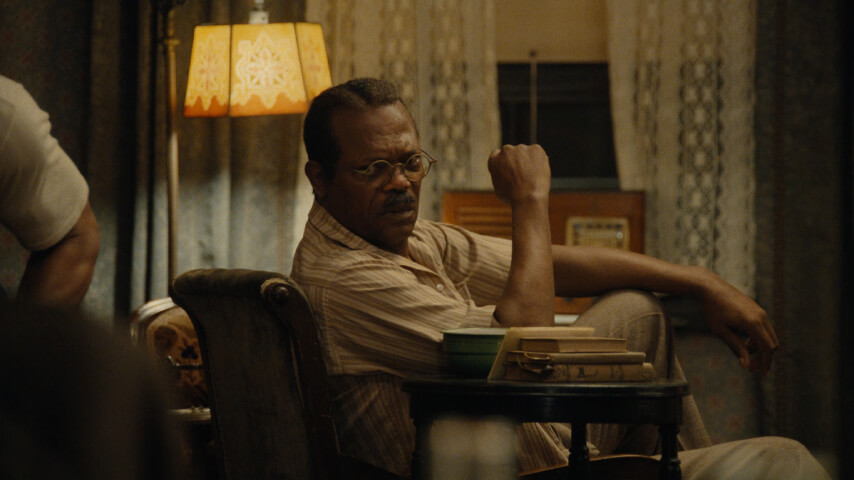A gripping allegorical séance sets The Piano Lesson free
Denzel Washington's sons take over for this August Wilson story of ghosts and legacies.
Photo: Netflix
Ghosts and demons plague the three film adaptations that Denzel Washington has produced of playwright August Wilson’s Pittsburgh Cycle. They nip at the heels of Wilson’s characters. Their unshakable pasts and daunting legacies torment their presents and endanger their futures. In Fences, which Washington directed and starred in, they drive the failures of his contradiction-laden hardass Troy. In Ma Rainey’s Black Bottom, they light a fire under trumpeter Levee (Chadwick Boseman, in a final performance that serves as its own electric eulogy), fast burning out. In The Piano Lesson, the ghosts are as tangible as they’ve ever been, and the film barely containing them is as weathered and tense as any family in need of a séance.
Denzel Washington passes the Wilson baton to his sons for The Piano Lesson: Malcolm Washington makes his directorial debut, while John David Washington stars as the blustery Boy Willie Charles. Boy Willie blows into 1930s Pittsburgh with his dim pal Lymon (Ray Fisher), a truckful of watermelons, and an angle. The house he’s crashing at isn’t just the home of his uncle Doaker (Samuel L. Jackson, who was the first to play Boy Willie on stage) and his sister Berniece (Danielle Deadwyler), but of an ornate family heirloom: a piano, literally haunted by its violent history.
The Charles family’s faces were carved into the piano’s panels, not so many decades ago, at the behest of the white family who owned them at the time. It was then reclaimed by Boy Willie’s father, who was murdered for his trouble. Much of this unfurls in stylish flashbacks (the best of which is the opening sequence, juxtaposed with the Fourth of July and intermittently lit by chrysanthemum fireworks) that make up The Piano Lesson’s rare scenes outside the Charles home.
The turmoil inside the home is driven by Boy Willie’s desire to sell the piano—which, by his account, is as much his as his sister’s—in order to buy up some land being sold by that same white family. Call it economic revenge, call it bootstrapping. The Piano Lesson calls it pride. Though Berniece finds it impossible to play the instrument any longer, and Doaker has washed his hands of the whole affair, the two respect its position in their home, in their family. It’s allegorical for the questions facing Black families in America: How do you participate in the systems that enslaved your ancestors and continue to oppress you? And what do you sacrifice through that participation? This ideas rage freely through Wilson’s words and some of Malcolm Washington’s stylistic choices.

![HBO teases new Euphoria, Larry David, and much more in 2026 sizzle reel [Updated]](https://img.pastemagazine.com/wp-content/avuploads/2025/12/12100344/MixCollage-12-Dec-2025-09-56-AM-9137.jpg)






































